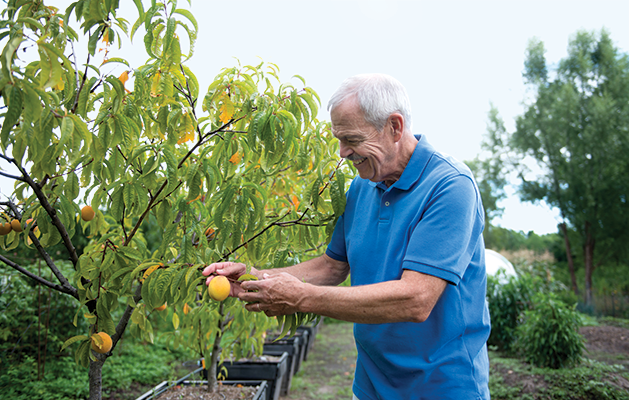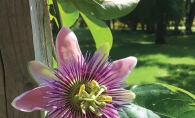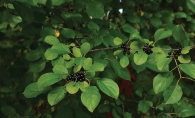
Ralph Bashioum is a plastic surgeon by day and avid gardener and nurseryman by night, weekend—and just about any other time he can escape to his teeming yard. To Bashioum, the hobby is a pleasant respite and a natural extension of his day job.
“I never realized I grew up in a foodie family,” says Wayzata-based cosmetic surgeon Ralph Bashioum. But as a kid in Pennsylvania, discussing the quality of cantaloupe at family dinners was as commonplace as bringing up the weather.
“It was always compared to ‘the best [my parents] ever had’—in Yuma, Arizona,” Bashioum says. “I was conscripted as a preteen to work in my parents’ garden. In summer, we never ate anything that wasn’t fresh from the garden. And all winter long, we ate preserved foods.”
The Bashioums’ obsession with top-quality produce translated into a generously sized garden and a stake in the local “apple culture,” with new varieties of fresh veggies and fruits taking up an ever-increasing percentage of the family’s menu—and free time. Eventually his parents ended up retiring—to Yuma, of course—inspired in no small part by the juicy produce that was in season much longer than in Pennsylvania. And Bashioum? As he established a successful career in Minnesota and launched Bashioum Cosmetic Surgery Center in Wayzata, he gradually built a garden to meet his culinary whims. But here, he says, “There’s only about a four-week period where everything is pretty. Then it all wilts and fades and gets so overgrown.”
In order to extend the growing season, and eke out as many fresh flavors as possible, over three decades he’s devised an intricate system to make the most of his third-acre garden. He over-winters as many plants as possible in his garage, sows garlic bulbs in fall and plants vegetables as early as he can. As a result he begins harvesting apricots—trained espalier vines in containers that come indoors for the coldest months—in mid-May and has a steady crop of produce through the beginning of November, when the Stayman-Winesap apples are ready.
Bashioum served on the board of directors for the University of Minnesota Landscape Arboretum and knows the players and plants in the local landscaping community. But he’s gotten into unique, less-expected varieties, including white strawberries (which spread like crazy and taste a bit like pineapple) and gorgeous pink ones with a short picking window.
“I want to grow things I can’t easily get in-season. Things are just more delicious fresh off the plant. Apples taste different when they’re stored even one week. And stone fruits? You just can’t get them fresh here,” says Bashioum. He’s provided his unique white strawberries for Gavin Kaysen’s Wayzata bistro Bellecour to use as a garnish on their foie gras, crème brûlée and pastries. “It’s a one-of-a-kind thing when you have something like that, with a story,” Bashioum says. “It provides an experience for people. That’s the essence of any starred restaurant. Great chefs share the philosophy of respecting the ingredients and knowing, ‘This is something exceptional.’ Locally grown white strawberries. You don’t get that elsewhere.”
Though Bashioum gets great satisfaction from sharing the fruits of his labor, he’s quick to shrug off the credit. And while gardening gives him a welcome reprieve from his exacting day job, he says the two skill sets are more alike than different.
“There’s a magical thing about doing surgery and watching things heal—it’s out of my control completely. There’s this saying: ‘God does the work, the surgeon sends the bill,’” says Bashioum. “Without the healing process, you’re sunk. It’s the same in the garden. There’s just a bunch of sticks out there for so much of the year in Minnesota. It’s hard to believe I can dig a hole and put a tiny seed in there, and watch it grow. It’s a very spiritual kind of thing; there’s a real awe to that. Any farmer sees that.”
The Yield
Bashioum has intentionally pushed the envelope of what’s typically grown in Minnesota. Despite the norm for our climate, he’s planted varieties that mean extra work, hoping for better quality and variety than he can get in local stores and restaurants. There are intrinsic benefits, too. “I get huge relaxation from picking produce, from reaping the fruits of my labor. I eat all the time. Out in the garden, I’m tasting nonstop,” he explains.
He describes Minnesota gardening, with its potential for dramatic temperature swings and weather events, as a fluid situation. “Last year was a bad year for melon,” Bashioum says. “But some years, they’re so good. French melons—the texture, flavor, fragrance—are every bit as good as the ones from Yuma.”
In His Corner
Bashioum has amassed quite a list of favorite vendors he turns to for top-quality plants and supplies. Giving your green thumb a go?
Here are a few of his go-to brands to check out for yourself:
Raintree Nursery and Stark Bros. Nursery specialize in mail-ordered ornamentals, fruit trees and other established edibles. Order a catalog, check your zone (ahem—the Twin Cities area falls within 4a) and order away.
Johnny’s Selected Seed. Request a catalog of this company’s incredible variety of top-quality, non-GMO vegetable, herb and flower seeds.
Seed Savers Exchange. By collecting, growing and sharing heirloom seeds, this organization preserves and promotes the health of America’s food heritage.
Amaroo Enterprises created the plastic nursery containers in which Bashioum keeps some of his plants and trees. They’re all designed to be as cost effective and long lasting as possible. Bashioum uses a tiny forklift to move containers into his garage to winter.
JMS Flower Farms creates a full line of safe and sustainable crop management products—including Stylet oil-based, natural herbicides and pesticides. Though the Bashioum garden isn’t totally organic, he avoids chemicals wherever possible. “We’re very respectful of the environment,” he says.
Felco pruning shears, saws and grafting knives are the industry favorite. And Bashioum’s, too! They’re spendy, but worth it.
Natupol. Bashioum gets mail-ordered bumblebee colonies, which arrive from St. Louis in early spring and help with pollination. They have a six- to 12-week lifecycle, and “Early in the growing season, there’s this beautiful fragrance from all the flowers in the garage, the buzzing of the bees. It’s just fabulous,” he says.
Toro. Bashioum loves his Dingo utility loader for digging, tilling and moving pots.









